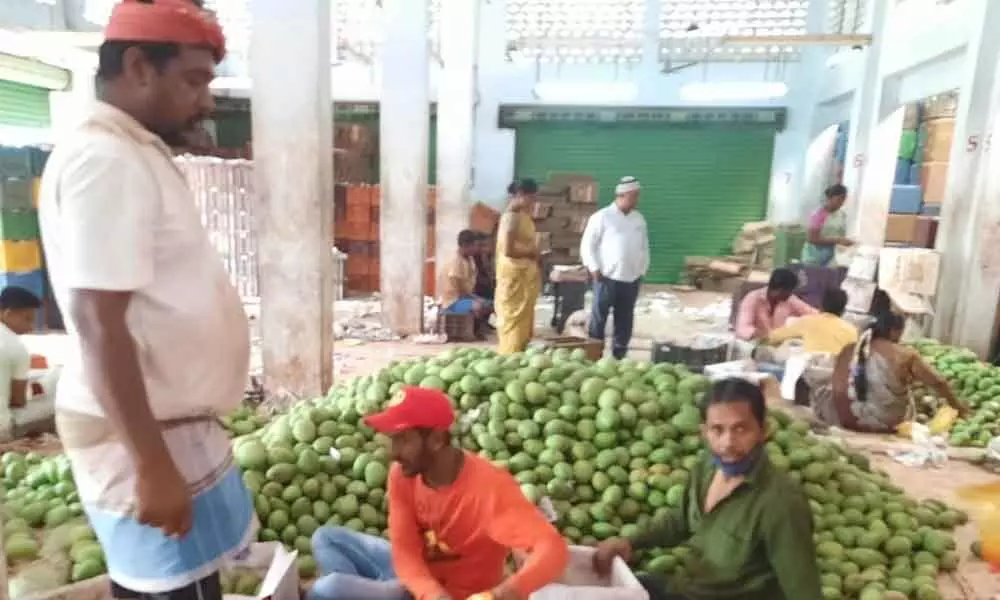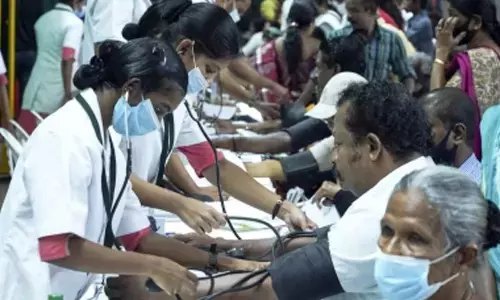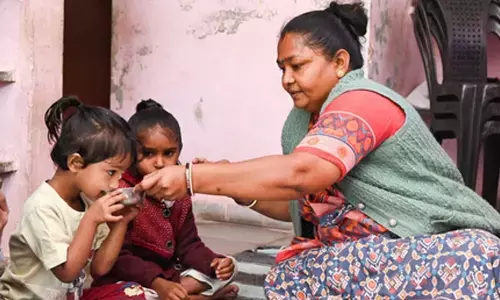Vijayawada: Mango prices fall and farmers hopes too

Mango prices fall and farmers hopes too
Sudden surge in corona cases in north India and traders forming syndicate has adversely affected the interests of the mango farmers who till last week were hoping to get best price for their produce as the crop this time has been good.
Vijayawada: Sudden surge in corona cases in north India and traders forming syndicate has adversely affected the interests of the mango farmers who till last week were hoping to get best price for their produce as the crop this time has been good.
Mango prices have suddenly started taking a nose dive in Krishna district. Initially, the high quality Banginapalli mangoes fetched prices from Rs 60,000 to Rs 70,000 per tonne in March. But now they are in the range of Rs 30,000 to Rs.45,000 per tonne. Traders from Maharashtra, Punjab, Delhi, UP and other States are not coming forward to buy the mangoes. Normally, traders from north prefer mangoes from Krishna district due to its quality and rail connectivity from Vijayawada to all the north Indian states.
Mango exporters and the traders claim that the prices are falling due to harvesting of unripe fruit, low quality and harvesting the crop at the same time by a large number of farmers.
Unpredictable weather in April and May is one of the reasons for the harvesting of the not so ripe fruit. Gales and sudden rainfall is very common in April and May in Krishna district. Due to rain, the mango crop could get damaged and in such a situation there will be no demand for the damaged crop and buyers will offer very less price. Hence farmers are going in for harvesting unripe mangoes.
D Sanjeev, managing director of Andhra Pradesh Agro Integrated pack house private Limited, endorsed this view. He said the farmers are in a helpless position as unpredictable weather conditions like gale and rain could affect the mango crop.
A mango farmer Ch Murali Krishna of Chatrai mandal said last year the farmers suffered due to national lockdown and the fear was so intense that even labour was not allowed to harvest the crop. This year though there is no lockdown, a surge of cases in the north had affected their prospects of recovering some losses they had suffered last season.
















